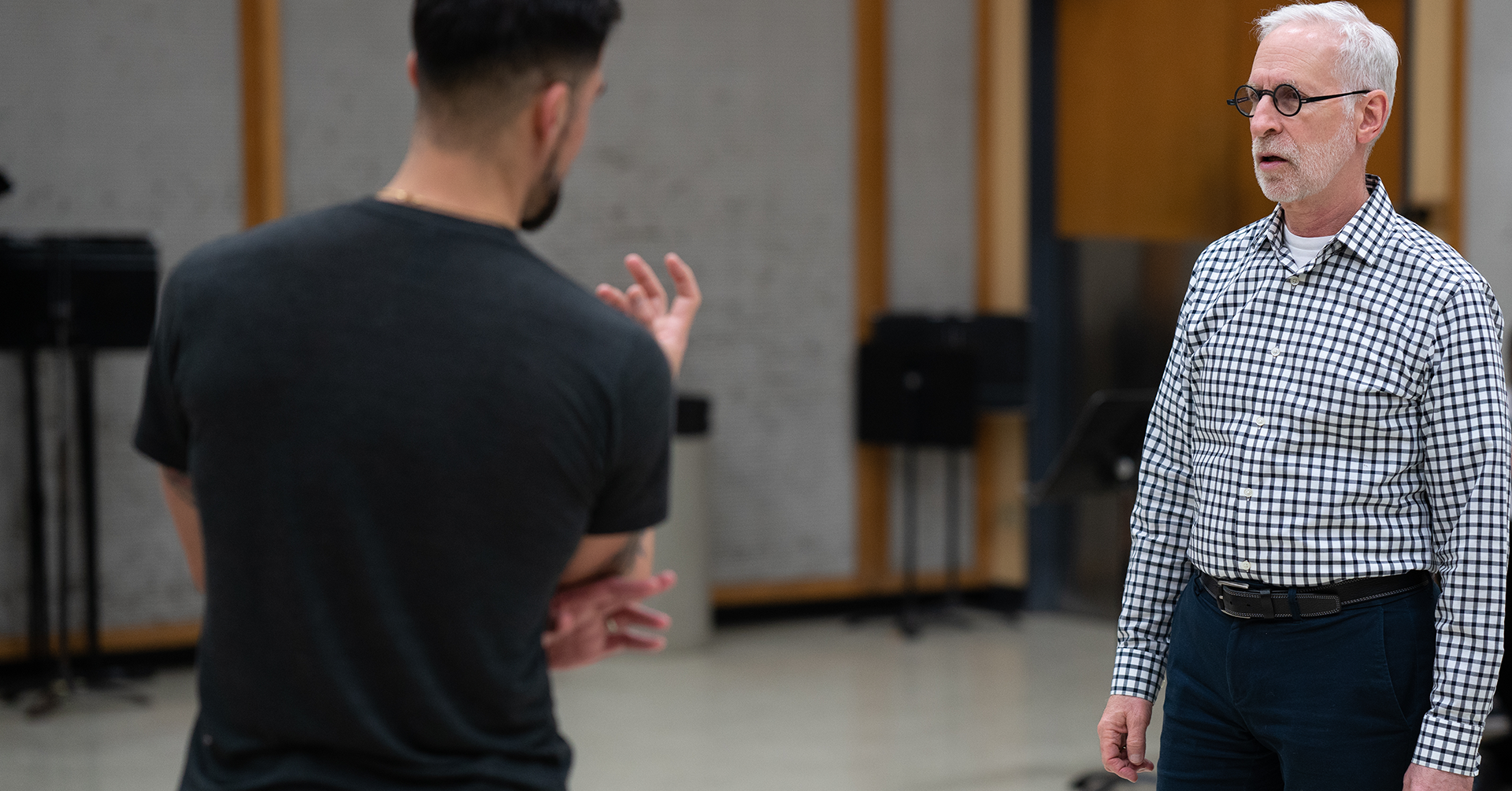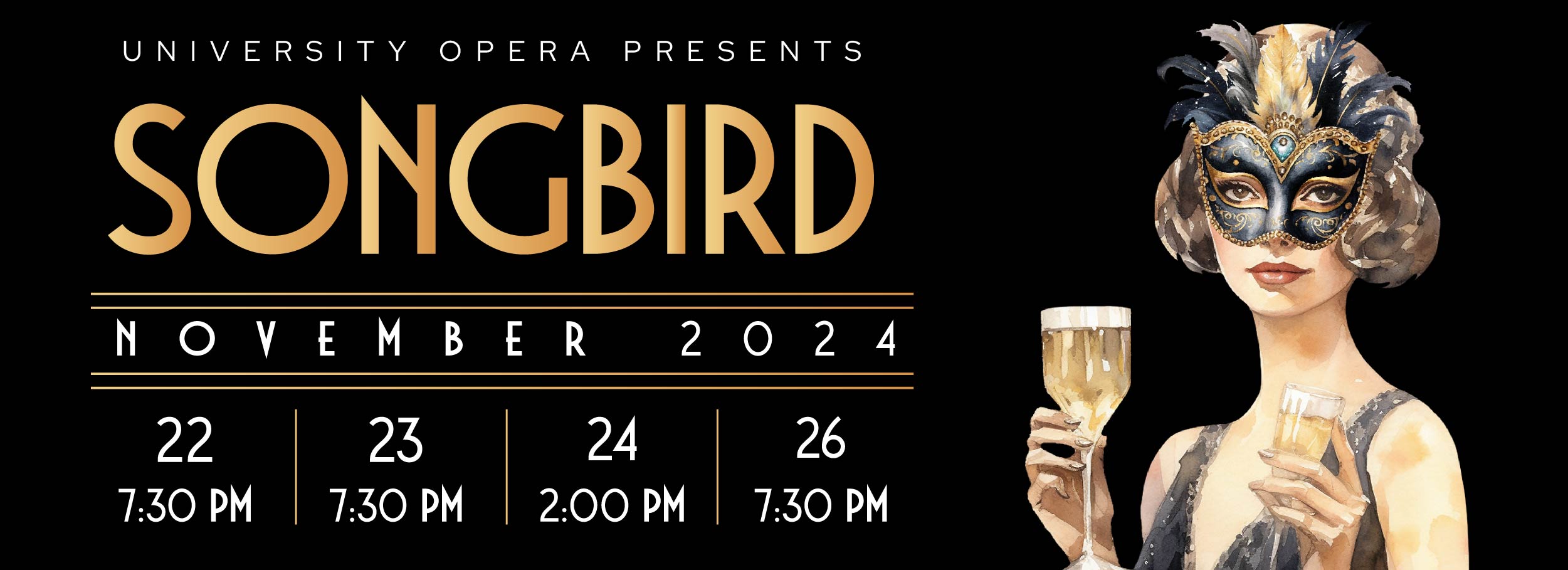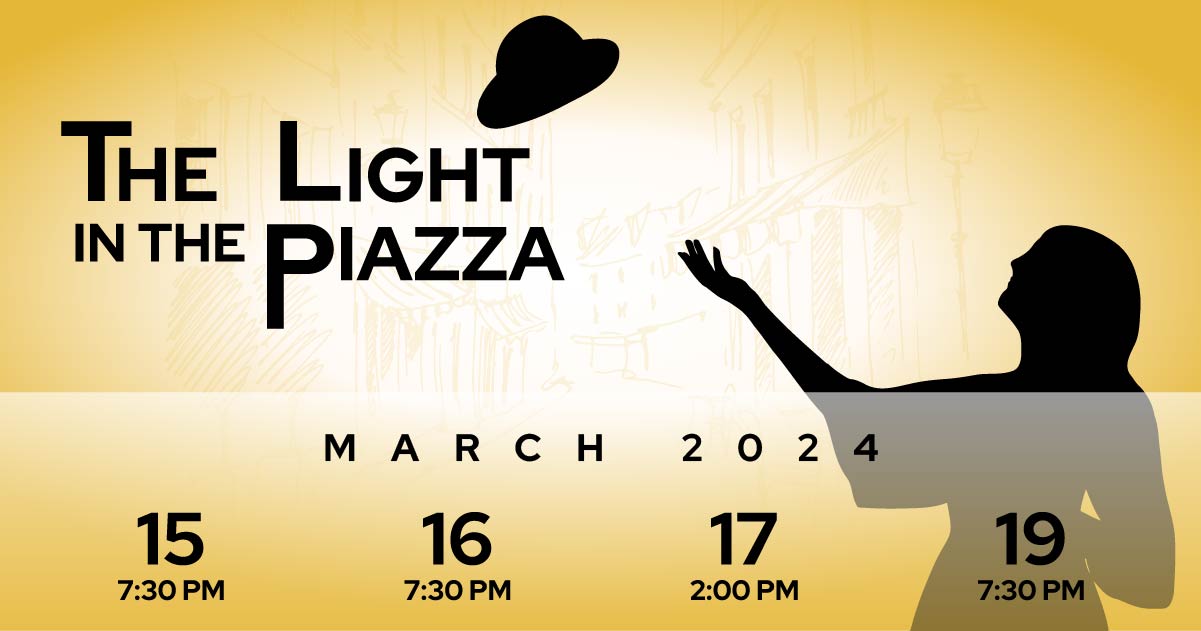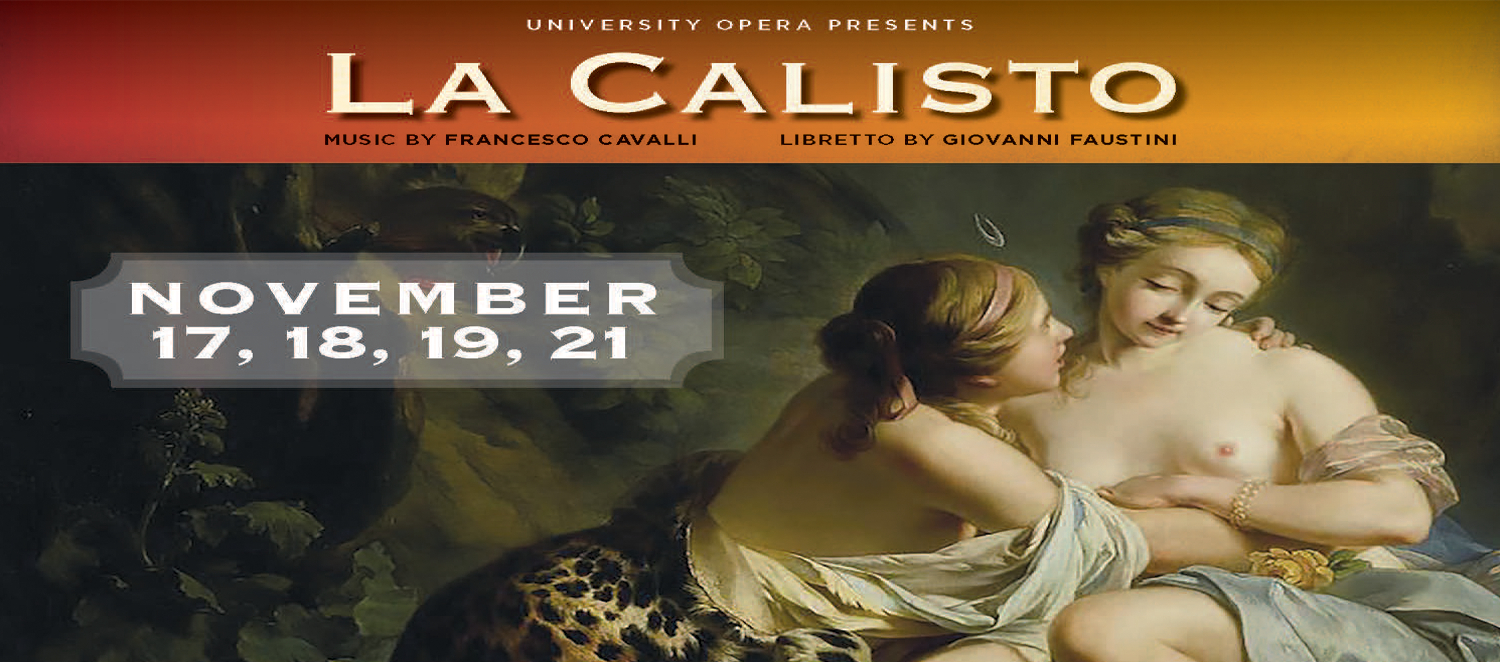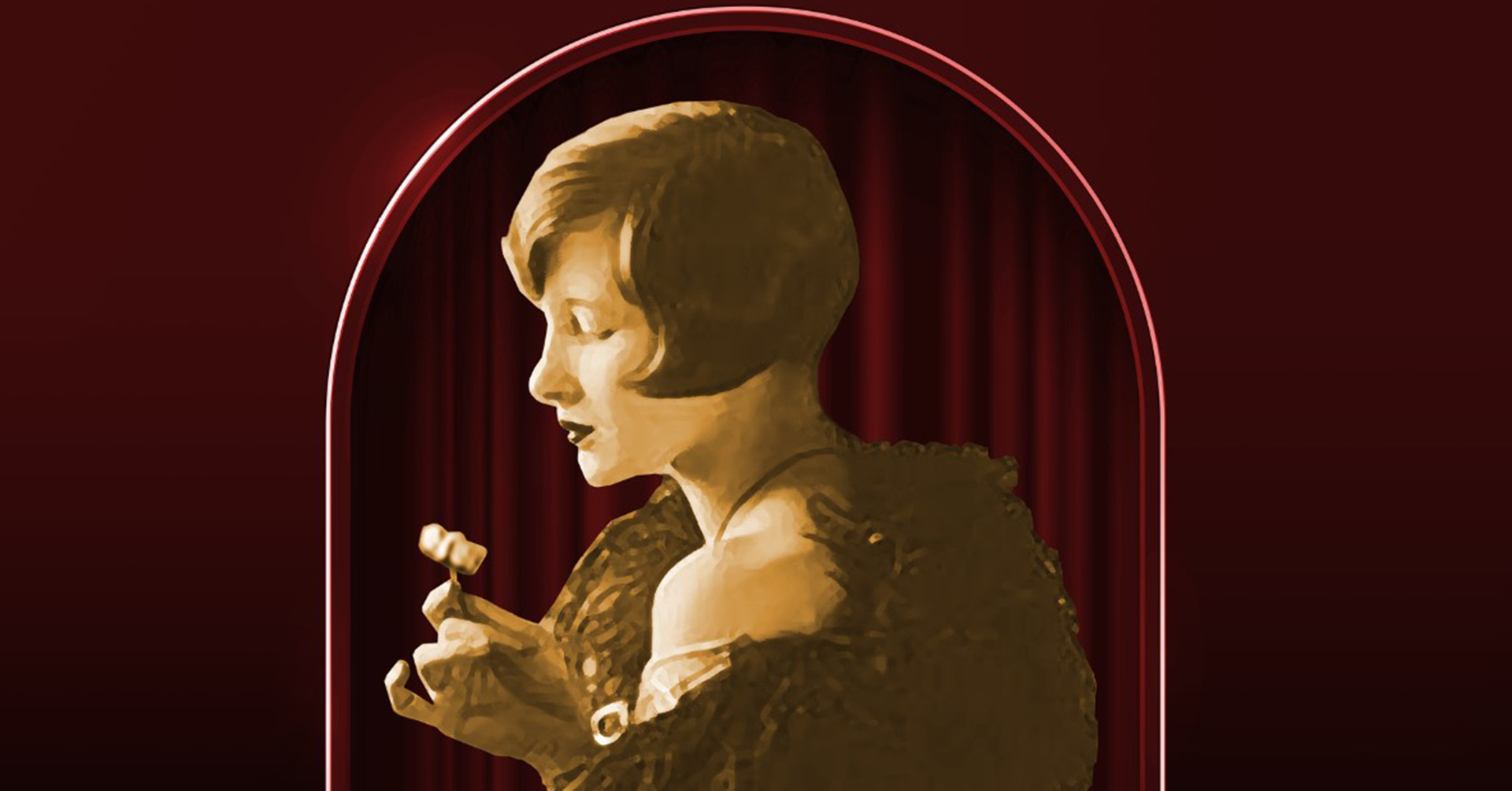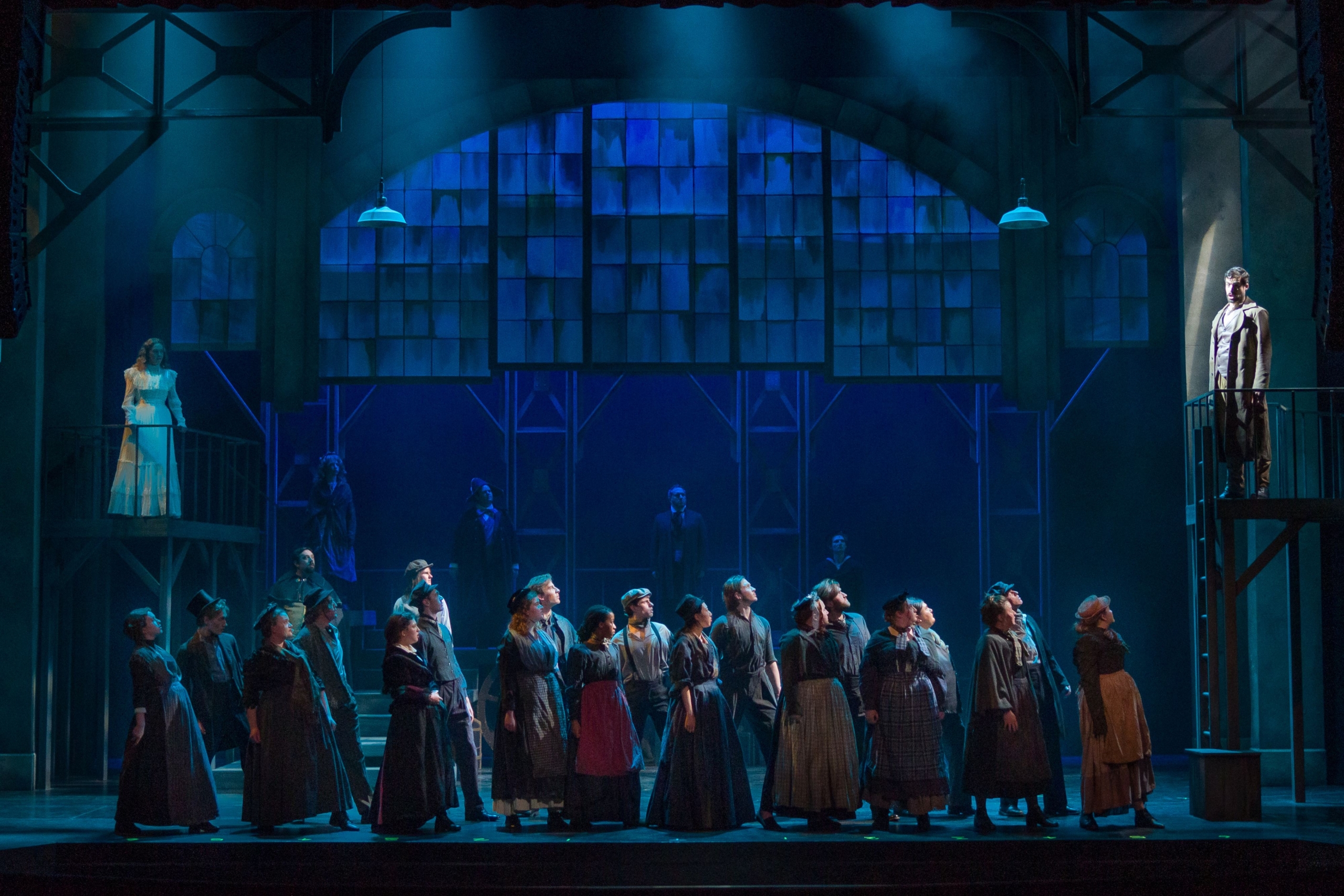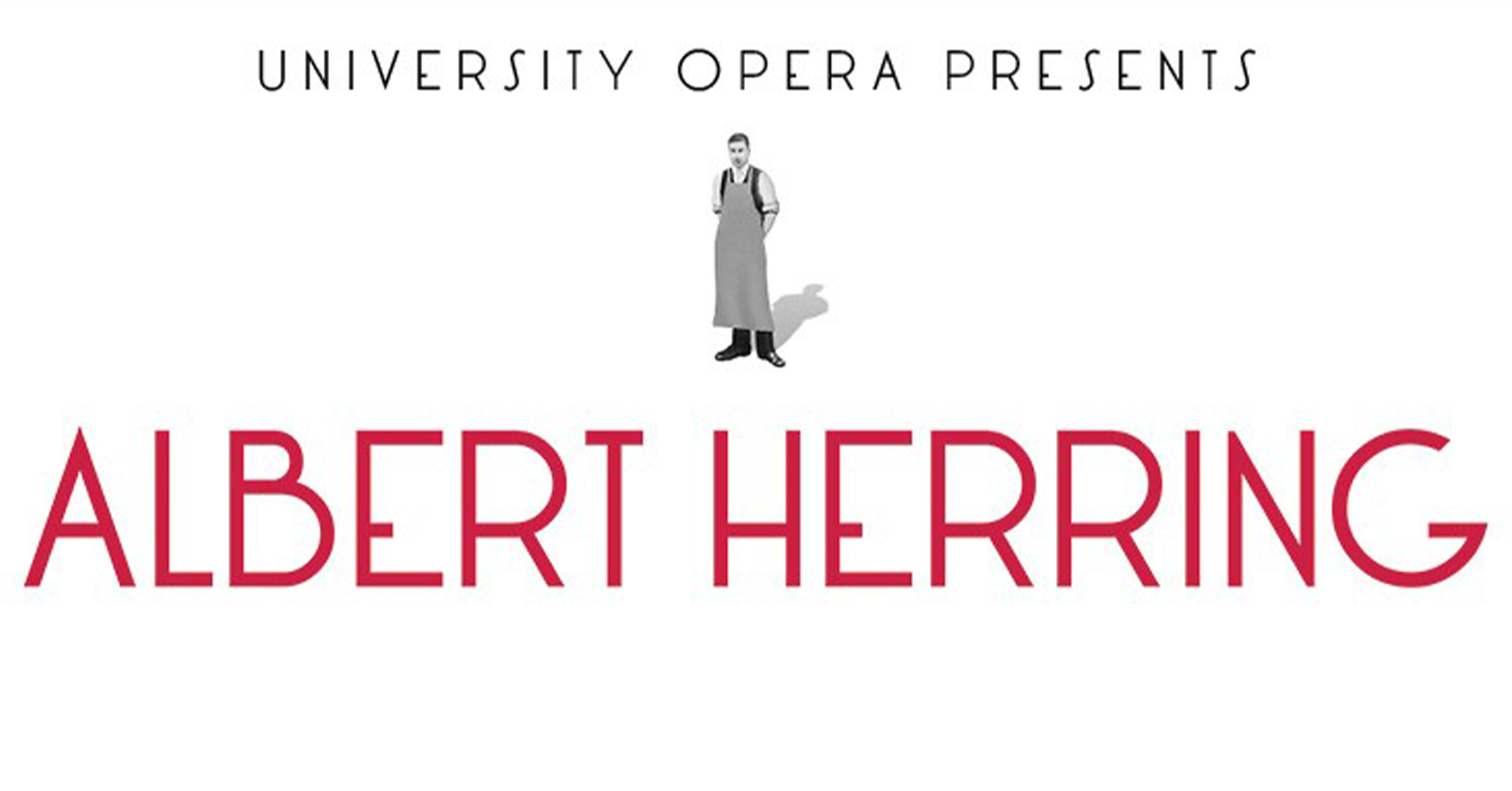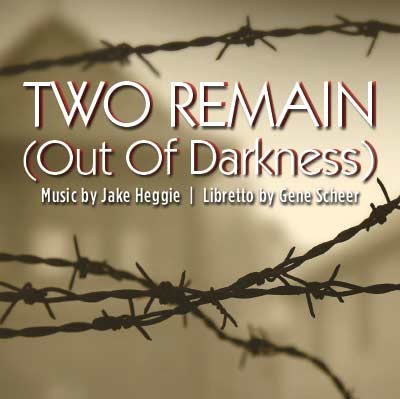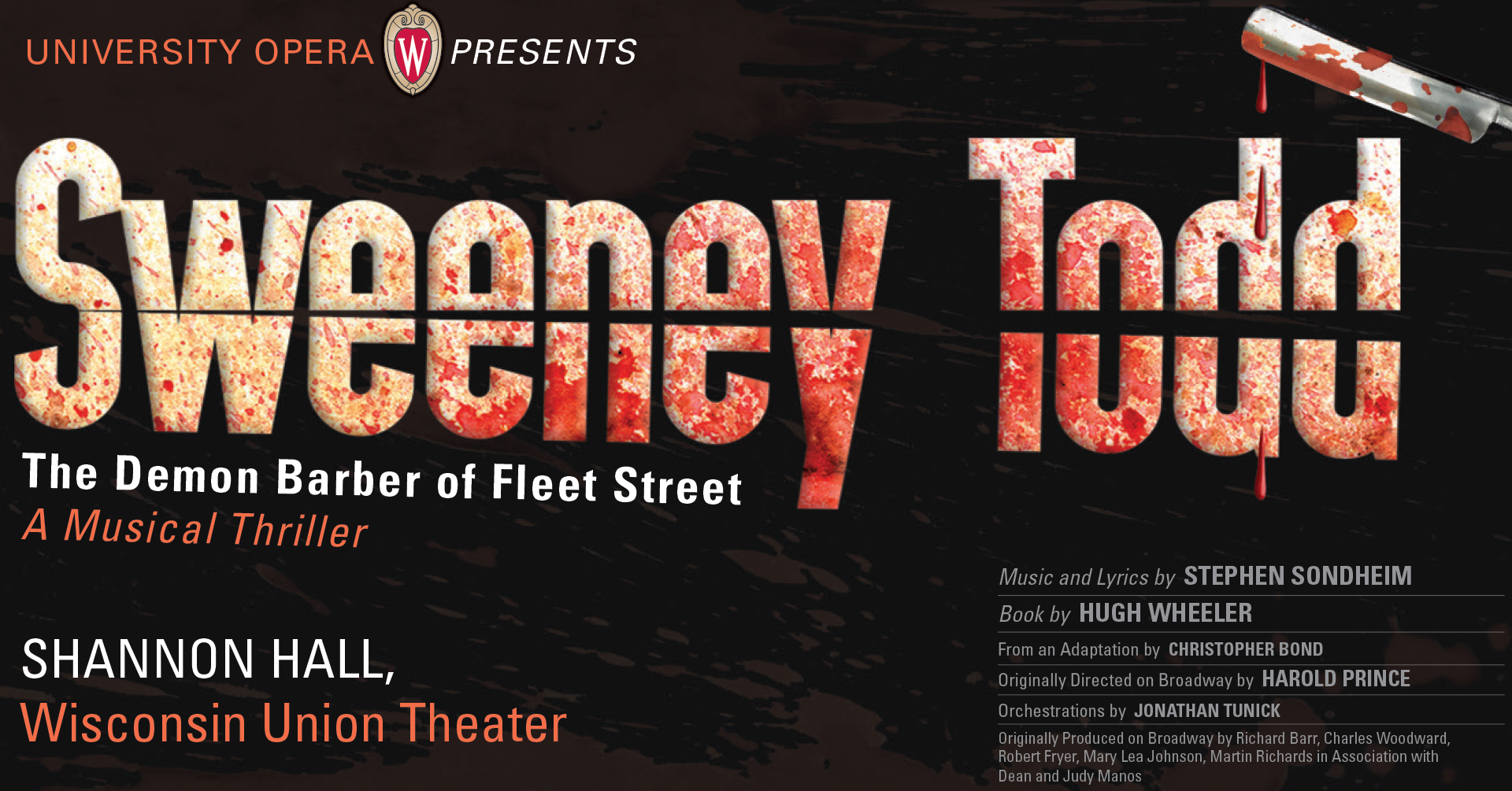
From March 4 though March 8, University Opera, in partnership with the Wisconsin Union Theater, will present a special production of Stephen Sondheim’s popular musical Sweeney Todd: The Demon Barber of Fleet Street.
The cast of Sweeney Todd shared thoughts on Stephen Sondheim’s legacy, what it means to be performing his work following his recent death, and more.
……
Kathryn Flynn
Vocal Performance (1st year Master’s)
Role: Beggar Woman
Have you ever performed a work of Sondheim’s before, prior to this production?
No.
Do you have a favorite work of Sondheim? If so, what is it and why is it a favorite?
Sweeney Todd, hands down! I’ve never been a gigantic Sondheim fan, but there’s something all-encompassing about this particular work that favors and caters to many different types of both musical and opera lovers alike.
Is there something that you feel makes learning, performing, or listening to Sondheim unique?
The speak-sing qualities/aspects of singing Sondheim. Many roles he composed are heavily-characterized, versus heavily-sung. Having the freedom and permission to “have fun” with creating and forming those vocal and character choices (especially for a role like Beggar Woman!) has created an entirely-new dimension of musical interpretation for me.
Do you have any thoughts on what it means to be performing his work now, following his recent death?
Without a doubt, Sondheim is one of the most influential and long-lasting composers of all time in the world of Musical Theatre. Performing a work as recognizable and loved as “Sweeney Todd” definitely presents its points of anxiety, hoping to “live up to the standard” that Sondheim would have wanted his work to represent. However, performing this work amongst other actors and singers who have an equal love, admiration and desire to perform at their peak ability is bringing a dimension and color to this piece never experience before.
……
Charles Hancin
Music No Option, Bachelors, Fifth Year
Role: Ensemble/Fogg
Have you ever performed a work of Sondheim’s before, prior to this production?
No.
Do you have a favorite work of Sondheim? If so, what is it and why is it a favorite?
It’s a tossup between Sweeney and Company, mostly for their adult themes, storytelling, and their capacity to be enjoyed by a wide range of audiences. These works better align with operettas than musicals in my opinion, and as such, command somewhat more respectability. That is not to say that other modern musicals are unrespectable, it’s just that there is more austerity to Sondheim’s works.
Is there something that you feel makes learning, performing, or listening to Sondheim unique?
His compositional voice is certainly distinct. In terms of scholarship, there is much that can be said about his ability to write lyrics and music for varied emotions, events, and characters. The way harmony or rhythm works with his writing is tightly controlled, but it is precisely this control that allows for so much more personal expression in the performance of the players in his works. Sweeney Todd is no exception, in fact, I would hazard that this is one of his most cohesive works save for perhaps that tooth-pulling competition, I can see why pretty much every production skips it.
That is not to say that his lyrics play little part in the success of his musicals. He is certainly a strong poet with a penchant for perfect rhymes. His wit is on full display in many of the numbers in Sweeney, but nowhere is it more exemplified than in A Little Priest. Much has already been said on the duet, so I won’t bore you with my frankly underqualified opinion, but I would be remiss not to mention that it’s downright awesome. Besides that, between Sondheim’s word choice and striking imagery, I don’t know which contributes more to the grimy and dank atmosphere of Sweeney Todd.
Anyway, I don’t see this level of quality in a lot of modern musicals, save for Bernstein, who had worked with Sondheim, probably imparting a fair amount of influence during their time together. I’d say this adherence to quality makes Sondheim’s works unique.
Do you have any thoughts on what it means to be performing his work now, following his recent death?
Not particularly as I’m somewhat an advocate of the unfortunately named ‘Death of the Author’ concept. That is not to say that I have no regard for Sondheim himself, I just see Sweeney Todd as a sort of timeless work that stands on its own merit without the desire to exalt it through the composer’s recent passing. I guess mentioning that would be a nice draw for audiences in terms of advertising, but I would personally steer away from that sort of stuff out of respect. Despite that, I’d have to be blind to miss the irony in doing the work that has the highest concentration of death, so why not go all the way?
Do you have any other thoughts to provide on the legacy of Sondheim, personal connections to the artist and his work, or something else in general?
Not particularly, though I guess I really liked Bernstein’s Mass for which I believe Sondheim was a lyricist. I bought the vocal score for it in high school and brought it over to America so that I can pore over it every once in a while. Those formative years were rather nice, but otherwise, my connection to Sondheim is relatively superficial.
……
Luis Orozco
DMA 1st year
Role: Sweeney Todd
Have you ever performed a work of Sondheim’s before, prior to this production?
No.
Do you have a favorite work of Sondheim? If so, what is it and why is it a favorite?
A little night music. Musically and dramatically brilliant! Sondheim has a gift for taking some of the most flawed characters and making them relatable and humanizing them.
Is there something that you feel makes learning, performing, or listening to Sondheim unique?
It’s extremely lyric centered, and finding a way to sing it while being as clear with the text as possible is always the challenge.
Do you have any thoughts on what it means to be performing his work now, following his recent death?
We are lucky to have the catalog from such a giant! We’re privileged to be performing his works.
Do you have any other thoughts to provide on the legacy of Sondheim, personal connections to the artist and his work, or something else in general?
Just grateful for his music and his words. “Witches can be right, giants can be good. You decide what’s right, You decide what’s good. Just remember Someone is on your side. No one is alone. You are not alone”
……
Lindsey Meekhof
DMA
Role: Mrs. Lovett
Have you ever performed a work of Sondheim’s before, prior to this production?
Yes. Into the Woods (Baker’s wife).
Do you have a favorite work of Sondheim? If so, what is it and why is it a favorite?
Into the Woods will always be my favorite since it was my first introduction to Sondheim. I loved that the characters are not all bad or good, they are people trying to figure it out as they go. “No One Is Alone” is one of my favorite pieces of musical theater of all time. He was masterful at delivering messages that everyone makes mistakes and there is always a community to identify with.
Is there something that you feel makes learning, performing, or listening to Sondheim unique?
The complexity of these characters and how complicated the label of villain can be.
Do you have any thoughts on what it means to be performing his work now, following his recent death?
His legacy will live on through his work and us continuing to share these messages of how important having community support is. It is also very meaningful to be performing for audiences after the isolation of the pandemic. This show will bring out many Sondheim fans that can share in the performance together.
Do you have any other thoughts to provide on the legacy of Sondheim, personal connections to the artist and his work, or something else in general?
Sweeney is a figure who was isolated and abandoned by his community then commits horrific crimes in his obsession for vengeance. Many of the characters in Sweeney Todd are left behind and isolated individuals. They crave connection as we all do. It is difficult in this story to label a true villain when so many bad things are happening. I would love to hear audience perspective on the characters, especially when Sondheim provides lighter and comic moments in the story.
……
Justin Kroll
DMA
Role: Beadle Bamford
Have you ever performed a work of Sondheim’s before, prior to this production?
Yes. Pirelli, Sweeney Todd (Waco Civic Theatre).
Do you have a favorite work of Sondheim? If so, what is it and why is it a favorite?
Sweeney Todd.
Is there something that you feel makes learning, performing, or listening to Sondheim unique?
The complex, intentional detail in every aspect of his works.
……
Noah Strube
Music Performance BA, Third Year
Role: Toby
Have you ever performed a work of Sondheim’s before, prior to this production?
Yes. I’ve never been in a full show of his work, but I have done Giants in the Sky from Into the Woods for Solo and Ensemble, and I did a character study on Bobby from Company for opera workshop.
Do you have a favorite work of Sondheim? If so, what is it and why is it a favorite?
I love Sunday in the Park with George. Its theme about the conflict involved in the pursuit of art is among the most relatable in all of musical theatre, and especially among Sondheim’s shows. Not to mention the score, balancing rhythmic complexity of the title song, as well as the sweeping glory of ‘Sunday’, one of my absolute favorite songs in a show.
Is there something that you feel makes learning, performing, or listening to Sondheim unique?
It is difficult, likely the most difficult repertoire in musical theatre as far as the well known repertoire goes, but working on it is never unsatisfying. Every time you open the score, you will learn or discover something new about it.
Do you have any thoughts on what it means to be performing his work now, following his recent death?
It shows that a man that brilliant whose work is so beloved will live on as long as there are people performing musical theatre. Few names carry the weight that his does in this community. I feel like he will be looked back on with the same reverent eyes we view the great composers of centuries ago now.
……
Jude Balthazar
Voice and Opera Performance, DMA, 1st year
Role: Anthony
Have you ever performed a work of Sondheim’s before, prior to this production?
No.
Do you have a favorite work of Sondheim? If so, what is it and why is it a favorite?
Since “Sweeney Todd” is my first performance work of Sondheim, I would say it’s a pleasure to discover the marvelous storyteller he is. The libretto is so alive and the music is to me an extension of the unspoken ideas/thoughts/feelings/emotions that carries the singing or that keeps going when there is no singing.
Is there something that you feel makes learning, performing, or listening to Sondheim unique?
I do. The uniqueness is how I ended up valuing the lyric/text/words first in order to genuinely be the character. For instance, in Sweeney Todd, it is imperative , at least for me, that you are seen and heard will performing as natural as possible on stage, and I feel this won’t happened without eating the text out and digesting it fully.
Do you have any thoughts on what it means to be performing his work now, following his recent death?
Sondheim grew up to become this impeccably renowned national and international musical figure. To sing his work today is telling me as an international student in the United States that I am called to follow his footstep to the best of my abilities. His music made history, and I have to keep living his legacy by sharing to the future generation who he was and his messages through his music.
Do you have any other thoughts to provide on the legacy of Sondheim, personal connections to the artist and his work, or something else in general?
I have always heard of him since I transferred to the state for my undergrad. I have been told how special his music is and I have witnessed the performances of his song by many of my peers that moved me; but his death had me think more of him and what he wanted to communicate to the world. I am glad to be in a such position to explore his world of thinking in Sweeney Todd.

